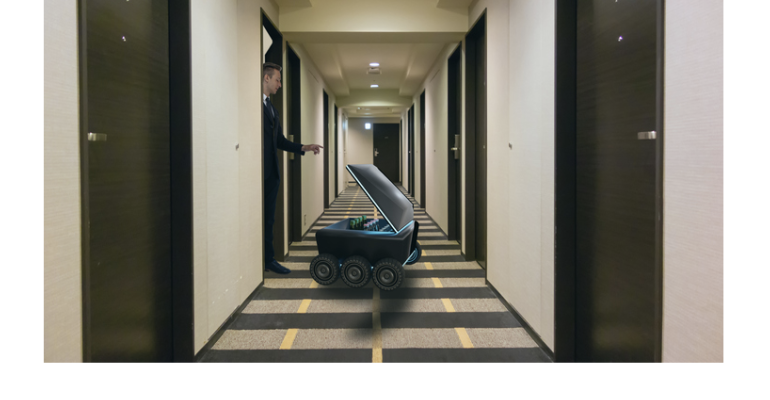The hospitality industry has been talking about robots augmenting hotels’ staffs for several years now, but the technology seems to have reached the point of being effective and reliable enough to handle a variety of customer-facing situations.
In this article from Hotel News Now, Michael Blake, chief technology officer for the American Hotel & Lodging Association, said robots can perform enough functions within hotels that guests will see the result this year. "The thought processing is getting better. I just think the robots are getting better and smarter. ...Whether it's serving or cleaning—and some would even define a [self-check-in kiosk] as a [type] of a robot—we're seeing that touchless, self-use staff augmentation.”
Blake added that he saw a notable example at a property with a coffee shop that could only stay open long enough each day by using a robot that can make drinks. "It actually pours and measures" and serves each drink, he said.
Scott Neslage, director of lodging operations at Indigo Road Hospitality, also said in the article that more hotel-technology investment should focus on elevating guest experience while solving labor issues. "Reduced staffing has essentially become the new norm. We're interested in implementing and using technology that is intuitive and helpful for the team and is impactful on guest experience." In the big picture, "I think [robots] will augment staff...but will they [completely] take over someone's job? No."
Replacing staff probably won’t happen in areas such as conference services. But in other areas, maybe so. According to this article in Hotel Technology News, several Aloft hotels deployed a robot named ALO butler, which delivers including towels, toiletries, and snacks to guest rooms at all hours. Guests have responded positively, while the hotels reported significant reductions in labor costs.
The article also notes that robots are being used in areas such as housekeeping (e.g. vacuuming robots that allow housekeepers to spend nearly their entire shift focused on other tasks), food and beverage, and security. There are even robotic valets that can park guests’ cars.
Getting More Humans into the Hotel Labor Force
According to this article in Travel Weekly, American Hotel & Lodging Association CEO Chip Rogers noted that 85 percent of member properties are "somewhat or severely understaffed" and he called the labor shortage "the issue permeating every facet" of the hotel business, during a presentation at the Americas Lodging Investment Summit in late January.
The hotel industry “has probably been more impacted by a lack of workers than any other industry," he said. As a result, the AHLA is lobbying not just for broad immigration reform but specifically an expansion of the H-2B work-visa program.
The Department of Homeland Security recently doubled the number of work visas available for 2023, but Rogers said the increased amount remains insufficient. "We're trying to convince members of Congress that the work visa program we have, particularly the H-2B, works exceptionally well; we just need a heck of a lot more," said Rogers. "We need about three to four times more workers than the H-2B visa cap allows right now."





